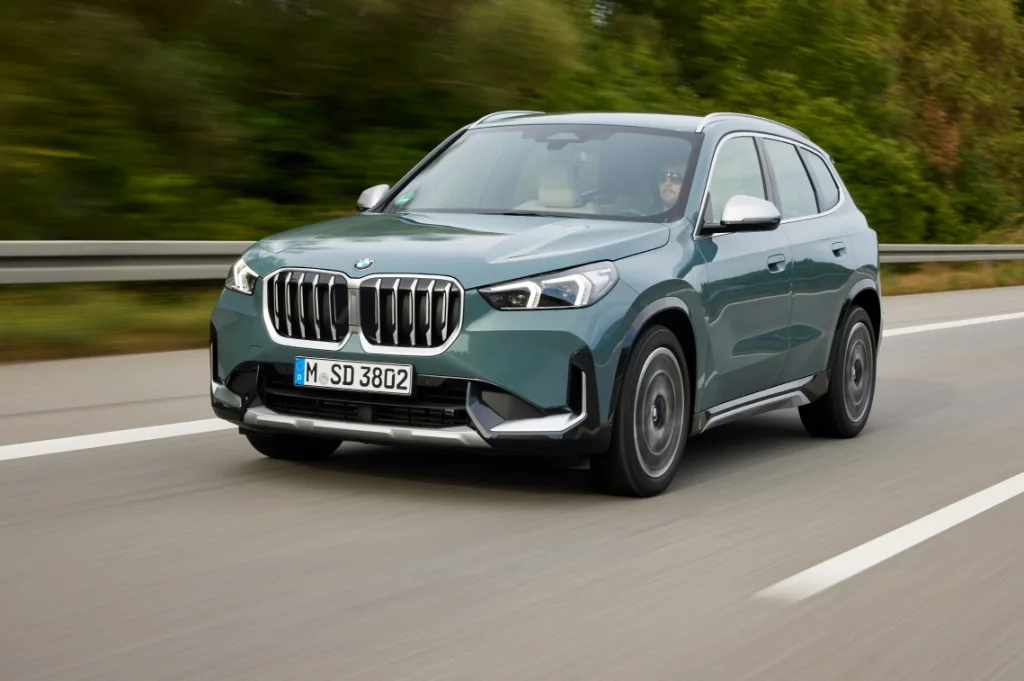
The BMW Group is using its presence at the “Fleet Europe Days” on 22 and 23 October in Luxembourg to show fleet operators ways to decarbonise their fleets with HVO100. In addition to fully electrified vehicles, the focus will be on fuels based on renewable raw materials.
Their advantage: the potential to save CO2. With more than 250 million existing vehicles in Europe, their CO2 footprint can be improved if the proportion of renewable fuels is increased. A new technical solution used by the BMW Group is proof that all BMW diesels in a fleet are fuelled exclusively with HVO100.
Refuelling data from the vehicle is compared with data from the fleet operator’s payment system. This means that the fuel used by the vehicle can be traced seamlessly. An important step towards an “HVO100 only fleet” for fleet customers.
Dr. Martin Kaufmann, Head of Powertrain Development at the BMW Group: “Our goal is always to have more environmentally friendly and efficient vehicles on the road. With the diesel replacement fuel HVO100, we have an opportunity to reduce the CO2 footprint of vehicle fleets. Especially in the area of fuels that are not based on fossil fuels, we see a potential that we are ready to realise.”
Bernhard Kuhnt, Head of Sales Region Europe, BMW Group: “Fleet customers are extremely important for sales in Europe and at the same time diesel remains a very good powertrain technology for many fleets.
The use of HVO100 offers a way to quickly reduce CO2 emissions that takes into account individual use cases – whether driving long distances or towing a trailer – and can thus help our fleet customers reduce their CO2 footprint.”
Initial contractual agreements with the operators of large BMW diesel fleets in Germany and Italy are imminent. These test fleets, together with the internal BMW Group fleet that has already been launched, will provide important data and findings for the further improvement of the technical solution.
HVO100 used in the first fuelling of all diesel produced in Germany
Since January 2025, all diesel models produced in Germany are being fuelled with HVO100 before delivery to dealers. This step underlines BMW’s commitment to making decarbonisation possible and achievable today. The abbreviation HVO stands for ‘Hydrotreated Vegetable Oil’ and the suffix ‘100’ indicates that it is filled with 100 per cent pure fuel.
“Neste MY Renewable Diesel™” HVO100 is used at the BMW Group plants in Munich, Dingolfing, Regensburg and Leipzig.
The fuel from Finnish manufacturer Neste enables a CO2e reduction of up to 90 per cent (“well to wheel”) compared to fossil diesel. The initial filling at the plants before delivery to the BMW Group dealer organisation is five to eight litres, depending on the model.
For the BMW Group, technological openness is a top priority. “Options instead of bans” is its motto. The company continues to invest in a broad portfolio – from battery electric vehicles, plug-in hybrids and hydrogen fuel cells to highly efficient combustion engines that can run on renewable fuels.
The BMW Group has long approved its vehicles for a variety of renewable fuels – including HVO100, B10 and eFuels according to the EN590 standard for diesel engines, and E25 and eFuels according to the EN228 standard for petrol engines.
Regulatory framework conditions must catch up
Regulation must catch up. To accelerate the uptake of renewable fuels across the market, the BMW Group is calling for an ambitious implementation of the Renewable Energy Directive (RED III), including national quotas that require at least a 30% reduction in greenhouse gas emissions from fuels, to be transposed into national law by 2025.
Dr. Thomas Becker, Head of Policy, External Relations and Sustainability at the BMW Group, says: “The BMW Group demands that every measure to reduce CO2 emissions is taken into account at every stage of a vehicle’s life cycle. This also includes the use of renewable fuels – especially for vehicles that primarily run on CO2-neutral fuel (CNF). These must be formally recognised in EU fleet legislation. The fuels are available, what we need now is a pragmatic and quickly implementable regulation that enables companies to develop innovations and make them marketable.”
